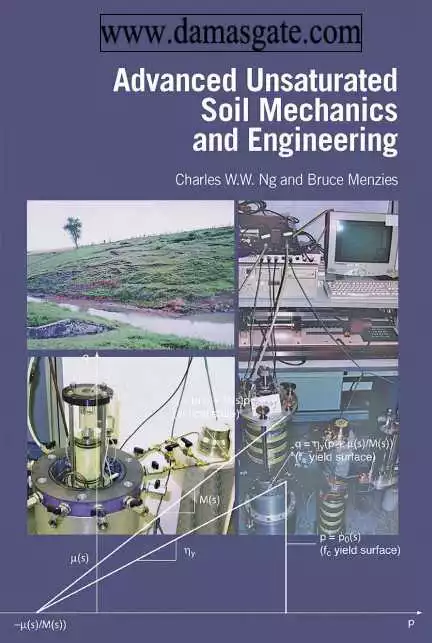Advanced Unsaturated Soil Mechanics and Engineering
Preface
Civil engineers build on or in the earth’s surface. Most of the earth’s land
surface comprises notoriously hazardous geomaterials called ‘unsaturated
soils’. These soils are a hazard to earth structures and earth-supported
structures because on wetting, by rain or other means, they can expand or
collapse with serious consequences for cost and safety. This book puts the
mechanics and engineering of unsaturated soils into a logical framework
for civil engineering analysis and design. It also explains the laboratory and
field testing and research that are the logical basis of this modern approach
to safe construction in these hazardous geomaterials.
A search of the Institution of Civil Engineers’ library web site returns
a total of 462 titles of books, conference proceedings and articles on ‘soil
mechanics’. A search for ‘unsaturated soil mechanics’, however, returns only
66 titles, or just over 14 per cent of the total. Of these only two of the
titles are text books. This is in spite of the fact that most of the soils on our
planet’s land surface are unsaturated. The small proportion of unsaturated
soil titles is hardly surprising, however. This is because post-Terzaghi soil
mechanics had its origins in northern Europe and North America where
soils involved in civil engineering construction are mainly saturated or nearsaturated.
So naturally the science developed on the (simplified) assumption
of saturation.
With the rapid development, however, of China, India, Central and South

Download
http://s18.alxa.net/s18/srvs2/01/Adv...ngineering.rar